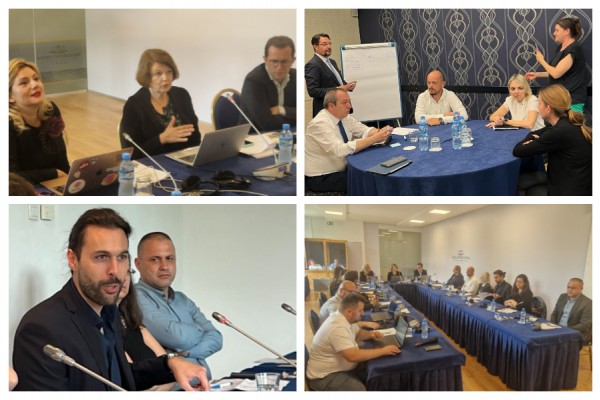
HRMIS, LMS and TMS in the Western Balkans: Trends, Challenges and Innovations
15-16 May 2024, Tirana, Albania
The workshop brought together 13 senior managers with responsibilities for Human Resource Management (HRM) and Officers dealing with Human Resources Management Information Systems (HRMIS), Learning Management Systems (LMS) and Training Management Systems in the Ministries of Public Administration and HRM authorities/Civil Service Agencies across the Western Balkans. The focus was on exploring trends, challenges, and innovations in HRMIS, LMS and TMS.
Through a blend of presentations, panel discussions, interactive sessions, and group work, participants enhanced their understanding and implementation of HRMIS, LMS, and TMS practices. They also learned from each other and the experiences of OECD members.
Emmanuel KUNTZ from the Inter-ministerial Center for Human Resources IT Services (CISIRH) shared the French experience with HRMIS and the challenges faced, while Mojca REINHARDT and Eva CALLIGARO from the Public Sector Directorate of the Ministry of Public Administration presented innovative practices from Slovenia, including an IT system for the management and development of employees. Jasna PEJOVIC, the ReSPA expert, delved into the new HRMIS, LMS and TMS trends. The expert Ansi SHUNDI explored the digitalisation of HRM and new trends in the Western Balkan PAR Strategies.
The workshop fostered dialogue on overcoming specific challenges related to HRM digitalisation in the Western Balkans, facilitating knowledge exchange, networking, and collaborative problem-solving. Participants developed actionable recommendations tailored to improving HRM systems in the region.
HRMIS is envisioned as a tool to ensure professional, well-managed, and coordinated HRM processes, simplifying work so public administration teams can focus on their core tasks. Efficient LMS enables organisations to manage, create, and deliver online learning and training content, while TMS provides the ability to manage all aspects of planning and organising the administrative side of training operations.



